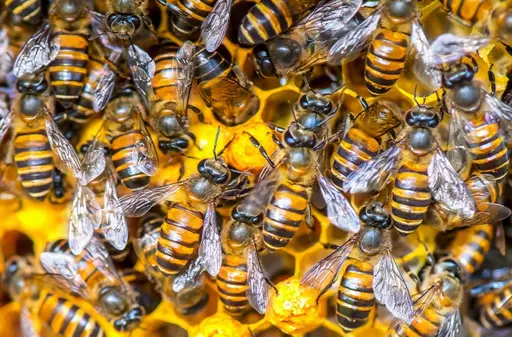Every time I read a new article about bees it makes me realize just how little we understand biological intelligence. Today’s find: bees can distinguish split-second flashes of light, revealing surprising timing abilities and advanced cognitive flexibility.



You’re describing your dog’s circadian rhythm, or day-night cycle, which is how he knows what time of day it is. The article is suggesting something even more advanced than that, that bees have an internal “stopwatch” which allows them to detect very short durations on the order of seconds. Mammals also have abilities along the same lines, but it’s a lot more impressive for an insect since they’re so compact and simple - on the surface - and don’t seem to have the complexity and scale of brain circuitry mammals do, at least as far as we understand.
I just watched a great video on spider intelligence that discussed how insects and arthropods have a different biological pressure on their intelligence. Because exoskeletal animals can’t grow in size they have been limited in how big their brains can become, creating an increased evolutionary pressure to come up with more efficient ways to solve cognitive problems compared to larger animals. For instance jumping spiders peripheral eyes can send signals directly to the legs, skipping the brain entirely, to tell the spider to turn to the side to face prey.
That sounds really interesting! Do you remember where you saw it?
https://youtu.be/_QF6kaOAuYg
This guy’s whole channel focuses on spiders. This was the first vid of his I saw and I’m very impressed with the quality and depth of discussion!
Thank you!
If you like spiders, this guy has a passion for them and it’s absolutely infectious.
https://m.youtube.com/c/TheDarkDen/featuredv
I assumed dogs were able to do this based on smell as he’s able to adjust to daylight savings time.
Regardless, animals are way smarter than humans give them credit for.